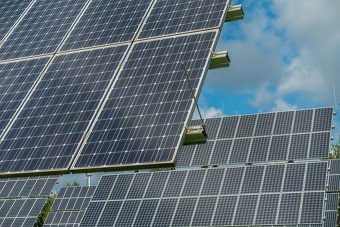
After investments in India’s thermal power market, Macquarie Asia Infrastructure Fund (MAIF) is now planning entry into India’s rapidly growing solar power market.
According to media reports, Hindustan Powerprojects Limited is planning to sell off some of its solar power assets to MAIF as the former looks to expand its solar base globally. Hindustan Powerprojects confirmed the development to an Indian business daily.
Hindustan Powerprojects has less than 300 megawatts of operational solar power capacity in India with an additional 150-200 megawatts under construction. The company is reportedly looking to sell off around half of the operational capacity to MAIF.
This is yet another instance of Indian developers looking to sell equity stake or entire assets to interested buyers to raise funds for further capacity expansion. In this case, Hindustan Powerprojects already has a substantial footprint in developed markets like the United Kingdom, Germany, Italy, and Japan. These international markets will now be the focus of the country as competition in the Indian market has increased substantially. The company has set a target for 2 gigawatts of operational capacity in overseas markets by 2022.
Through this acquisition Macquarie will make an entry into the Indian solar power market. The advantage that Macquarie would get from Hindustan Powerprojects is that the company was among the first entrants in the Indian solar power market.
The company commissioned India’s first utility-scale solar power project even before the National Solar Mission was announced in 2010. Solar power tariffs at that time were as high as Rs 17.91/kWh (27¢/kWh). It also has projects in Gujarat, again with substantially high tariffs compared to the current tariffs.
It is, however, unclear which projects Hindustan Powerprojects will sell to MAIF under the proposed transaction. Still, with power projects tied up with state and central government-owned companies, the revenue is somewhat assured for the next 20-25 years.
Source: cleantechnica.com


